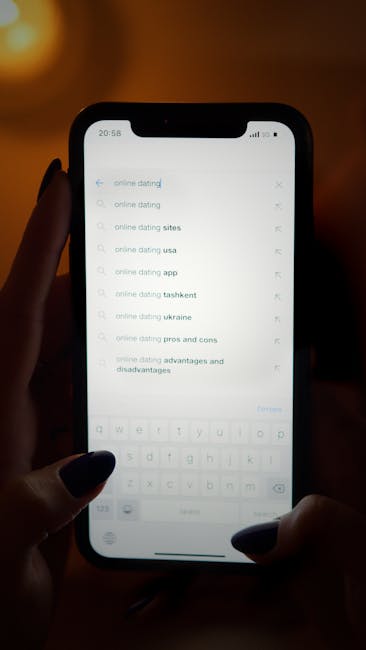Google Messages could soon get a useful WhatsApp integration (APK teardown) - Related to (apk, ui?, teardown), about, t-mobile
Google Messages could soon get a useful WhatsApp integration (APK teardown)

clients can currently initiate Google Meet video calls, but the service could prefer WhatsApp in the future.
Google Messages would still fall back to Google Meet if the other user doesn’t have WhatsApp installed.
Google Messages is getting the bulk of attention from Google these days out of all of its messaging apps. With this growing popularity, getting Messages to play nice with other apps makes sense. Google has used the opportunity to tie apps like Google Meet into Messages, but these other apps are often not that popular, leading to a wasted integration. Google could fix this by integrating more popular apps like WhatsApp as a video call solution within Google Messages.
Authority Insights story on Android Authority. Discover You're reading anstory on Android Authority. Discover Authority Insights for more , app teardowns, leaks, and in-depth tech coverage you won't find anywhere else. An APK teardown helps predict aspects that may arrive on a service in the future based on work-in-progress code. However, it is possible that such predicted aspects may not make it to a public release.
Currently, Google Messages displays a call and video call icon in the top right of every individual conversation. Tapping the video icon starts a Google Meet video call. If the caller doesn’t have Google Meet installed, Messages prompts the user to install it to start the call. If you want to initiate a video call from another app, you will have to go to that app to start it, which is logical but a bit inconvenient. This behavior persists in both single-user chats and group chats.
In the future, Google could allow clients to initiate a WhatsApp video call from within the Google Messages chat. We spotted clues for this integration in Google Messages v20250131 and managed to activate the feature. This is what you can expect to see when the feature goes live:
Current behavior: Tapping the video option starts a Google Meet call. You get a prompt to install Meet if you don't have it installed. Upcoming behavior: The video button lets you start a WhatsApp call. You can start a Meet call if the other user doesn't have WhatsApp.
As you can see, tapping on the video icon will reveal a WhatsApp video call option. Tapping on it directly initiates a video call through WhatsApp, presuming the user on the other end also has WhatsApp installed. If they don’t, you will not see a WhatsApp video call option and instead fall back to a Google Meet video call. Here’s a screen recording of the feature in action:
Note that this behavior persists only for single-user chats. For group chats, you will still see a Google Meet video call. This behavior may or may not change when the feature is released to the public. We also hope to see an option to choose from both, in case you still want to call someone on Google Meet even if they have a WhatsApp account.
This feature is currently not available in Google Messages. We’ll keep you updated when we learn more.
? Talk to us! Email our staff at Email our staff at [website] . You can stay anonymous or get credit for the info, it's your choice.
WhatsApp's never-ending feature additions continue. Spotted in the latest beta release for Android, which went out today to those enrolled in the What......
Following the web, the Gemini app on Android and iOS are starting to get access to [website] Flash Thinking Experimental and [website] Pro Experimental (if you’re......
What do you think about YouTube’s Reddit-inspired comments UI?

It uses a new indicator to connect the main comment with corresponding replies.
The new UI is live in the YouTube app for Android and iOS.
YouTube has been tinkering with the comment section on its mobile apps for quite some time to encourage clients to participate in conversations and help them easily find interesting discussion topics. While some of its AI-powered capabilities, like comment topics and live chat summaries, have been well received, its new threaded comments UI seems to be getting a mixed response.
In case you missed it, YouTube in the recent past rolled out a new Reddit-like threaded comments UI for its Android and iOS apps. It elements a new visual indicator connecting the profile image of the user who posted the main comment with corresponding replies.
However, unlike Reddit’s comments UI, this indicator does not branch out to subsequent replies. You still have to pay attention to user tags to know whether someone is responding to the top comment in a thread or to a reply on that comment, making the new UI seem half-baked and inferior to Reddit’s.
Conversely, replies on YouTube comments are still condensed by default, so you don’t have to scroll through all the replies like on Reddit and can skip going through replies to comments you don’t find interesting. User feedback on Reddit indicates that while some prefer this new YouTube comments UI, others think it’s an unnecessary change that doesn’t do anything to make it easier for clients to follow replies within a thread. We’d love to know your thoughts on YouTube’s new threaded comments UI and whether or not you find it useful:
What do you think about YouTube's Reddit-inspired comments UI? 3 votes The new visual indicator seems useful 33 % It's an unnecessary change 0 % It still needs some work 67 % I'm not sure 0 %.
? Talk to us! Email our staff at Email our staff at [website] . You can stay anonymous or get credit for the info, it's your choice.
: Have you purchased a new Android phone in 2025?...
Galaxy S26 . A fresh rumor indicates that Samsung is working towards equipping some of the Galaxy S26 phones with its own custom-made chip.
T-Mobile has finally pulled the plug on its legacy app

The app is now non-functional and tells clients to switch to the T-Life app.
If you still haven’t deleted the T-Mobile app from your phone, you may want to do it now to save yourself some space. The app that was replaced by T-Life is now officially dead.
After becoming redundant, T-Mobile retired its old app by taking the listing off of the Play Store and App Store back in November. However, the app was still functional if you still had it installed. T-Mobile later followed up that move by sending warnings to those who were still trying to use the app. Now the Un-carrier is done with sending warnings and has completed the final step in the app consolidation process.
The T-Mobile app has been shut down completely and clients are being greeted with a message to “Please enhancement to the new T-Life app.” With that, the app has become just a useless icon taking up space on your phone.
If you want to manage your account without having to go to a physical store, you’ll want to do as the firm says and download the T-Life app. The adoption of T-Life goes hand-in-hand with the firm’s strategy of relying more on online support for account management. There are worries that this digitization will lead to T-Mobile reducing its number of physical stores.
? Talk to us! Email our staff at Email our staff at [website] . You can stay anonymous or get credit for the info, it's your choice.
Eternal Strands is a game of very high highs and frustratingly low lows.
On the one hand, this debut title from Quebec City-based Yellow Brick Games ......
iQOO launched the iQOO 12 outside China in December 2023 with Android 14-based Funtouch OS 14. It came with the promise of three years of Android OS u......
The Galaxy S25 phones all use a Snapdragon chip. | Video credit — Samsung.
Samsung’s latest flagship phones — theseries ......
Market Impact Analysis
Market Growth Trend
| 2018 | 2019 | 2020 | 2021 | 2022 | 2023 | 2024 |
|---|---|---|---|---|---|---|
| 7.3% | 8.8% | 9.3% | 10.3% | 10.8% | 11.2% | 11.3% |
Quarterly Growth Rate
| Q1 2024 | Q2 2024 | Q3 2024 | Q4 2024 |
|---|---|---|---|
| 10.6% | 10.8% | 11.1% | 11.3% |
Market Segments and Growth Drivers
| Segment | Market Share | Growth Rate |
|---|---|---|
| Smartphones | 42% | 8.7% |
| Mobile Applications | 26% | 14.5% |
| Mobile Infrastructure | 17% | 12.8% |
| Wearables | 11% | 18.9% |
| Other Mobile Tech | 4% | 9.4% |
Technology Maturity Curve
Different technologies within the ecosystem are at varying stages of maturity:
Competitive Landscape Analysis
| Company | Market Share |
|---|---|
| Apple | 24.3% |
| Samsung | 22.7% |
| Huawei | 14.2% |
| Xiaomi | 11.8% |
| Google Pixel | 5.4% |
Future Outlook and Predictions
The Mobile and Google: Latest Developments landscape is evolving rapidly, driven by technological advancements, changing threat vectors, and shifting business requirements. Based on current trends and expert analyses, we can anticipate several significant developments across different time horizons:
Year-by-Year Technology Evolution
Based on current trajectory and expert analyses, we can project the following development timeline:
Technology Maturity Curve
Different technologies within the ecosystem are at varying stages of maturity, influencing adoption timelines and investment priorities:
Innovation Trigger
- Generative AI for specialized domains
- Blockchain for supply chain verification
Peak of Inflated Expectations
- Digital twins for business processes
- Quantum-resistant cryptography
Trough of Disillusionment
- Consumer AR/VR applications
- General-purpose blockchain
Slope of Enlightenment
- AI-driven analytics
- Edge computing
Plateau of Productivity
- Cloud infrastructure
- Mobile applications
Technology Evolution Timeline
- Technology adoption accelerating across industries
- digital transformation initiatives becoming mainstream
- Significant transformation of business processes through advanced technologies
- new digital business models emerging
- Fundamental shifts in how technology integrates with business and society
- emergence of new technology paradigms
Expert Perspectives
Leading experts in the mobile tech sector provide diverse perspectives on how the landscape will evolve over the coming years:
"Technology transformation will continue to accelerate, creating both challenges and opportunities."
— Industry Expert
"Organizations must balance innovation with practical implementation to achieve meaningful results."
— Technology Analyst
"The most successful adopters will focus on business outcomes rather than technology for its own sake."
— Research Director
Areas of Expert Consensus
- Acceleration of Innovation: The pace of technological evolution will continue to increase
- Practical Integration: Focus will shift from proof-of-concept to operational deployment
- Human-Technology Partnership: Most effective implementations will optimize human-machine collaboration
- Regulatory Influence: Regulatory frameworks will increasingly shape technology development
Short-Term Outlook (1-2 Years)
In the immediate future, organizations will focus on implementing and optimizing currently available technologies to address pressing mobile tech challenges:
- Technology adoption accelerating across industries
- digital transformation initiatives becoming mainstream
These developments will be characterized by incremental improvements to existing frameworks rather than revolutionary changes, with emphasis on practical deployment and measurable outcomes.
Mid-Term Outlook (3-5 Years)
As technologies mature and organizations adapt, more substantial transformations will emerge in how security is approached and implemented:
- Significant transformation of business processes through advanced technologies
- new digital business models emerging
This period will see significant changes in security architecture and operational models, with increasing automation and integration between previously siloed security functions. Organizations will shift from reactive to proactive security postures.
Long-Term Outlook (5+ Years)
Looking further ahead, more fundamental shifts will reshape how cybersecurity is conceptualized and implemented across digital ecosystems:
- Fundamental shifts in how technology integrates with business and society
- emergence of new technology paradigms
These long-term developments will likely require significant technical breakthroughs, new regulatory frameworks, and evolution in how organizations approach security as a fundamental business function rather than a technical discipline.
Key Risk Factors and Uncertainties
Several critical factors could significantly impact the trajectory of mobile tech evolution:
Organizations should monitor these factors closely and develop contingency strategies to mitigate potential negative impacts on technology implementation timelines.
Alternative Future Scenarios
The evolution of technology can follow different paths depending on various factors including regulatory developments, investment trends, technological breakthroughs, and market adoption. We analyze three potential scenarios:
Optimistic Scenario
Rapid adoption of advanced technologies with significant business impact
Key Drivers: Supportive regulatory environment, significant research breakthroughs, strong market incentives, and rapid user adoption.
Probability: 25-30%
Base Case Scenario
Measured implementation with incremental improvements
Key Drivers: Balanced regulatory approach, steady technological progress, and selective implementation based on clear ROI.
Probability: 50-60%
Conservative Scenario
Technical and organizational barriers limiting effective adoption
Key Drivers: Restrictive regulations, technical limitations, implementation challenges, and risk-averse organizational cultures.
Probability: 15-20%
Scenario Comparison Matrix
| Factor | Optimistic | Base Case | Conservative |
|---|---|---|---|
| Implementation Timeline | Accelerated | Steady | Delayed |
| Market Adoption | Widespread | Selective | Limited |
| Technology Evolution | Rapid | Progressive | Incremental |
| Regulatory Environment | Supportive | Balanced | Restrictive |
| Business Impact | Transformative | Significant | Modest |
Transformational Impact
Technology becoming increasingly embedded in all aspects of business operations. This evolution will necessitate significant changes in organizational structures, talent development, and strategic planning processes.
The convergence of multiple technological trends—including artificial intelligence, quantum computing, and ubiquitous connectivity—will create both unprecedented security challenges and innovative defensive capabilities.
Implementation Challenges
Technical complexity and organizational readiness remain key challenges. Organizations will need to develop comprehensive change management strategies to successfully navigate these transitions.
Regulatory uncertainty, particularly around emerging technologies like AI in security applications, will require flexible security architectures that can adapt to evolving compliance requirements.
Key Innovations to Watch
Artificial intelligence, distributed systems, and automation technologies leading innovation. Organizations should monitor these developments closely to maintain competitive advantages and effective security postures.
Strategic investments in research partnerships, technology pilots, and talent development will position forward-thinking organizations to leverage these innovations early in their development cycle.
Technical Glossary
Key technical terms and definitions to help understand the technologies discussed in this article.
Understanding the following technical concepts is essential for grasping the full implications of the technologies discussed in this article. These definitions provide context for both technical and non-technical readers.


